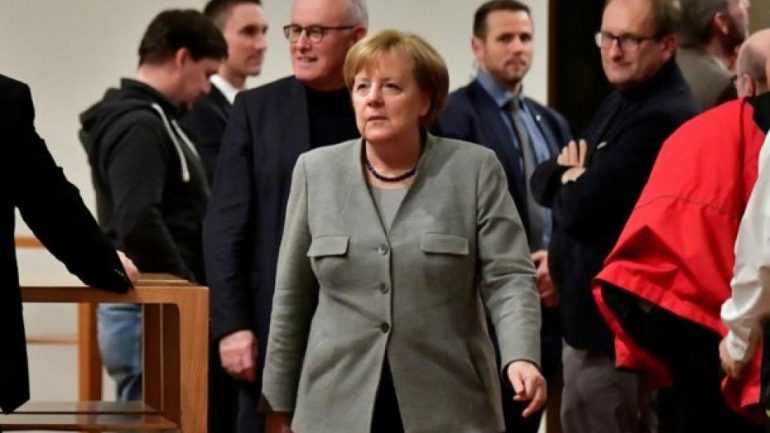German Chancellor Angela Merkel's efforts to form a four-party coalition government and secure a fourth consecutive term were dealt a severe blow today, when one of the parties involved in the exploratory talks, the Free Democrats (FDP) withdraw from the process, sparking a political crisis in Germany.
Merkel, whose Conservatives lost the election but won a reduced number of seats, said shortly after the FDP withdrew from the exploratory talks that it would inform German President Frank-Walter Steinmeier in the morning that it could no longer form a governing coalition.
The development brings Germany to two unprecedented choices in the post-war era: either the Christian Union (CDU / CSU) will form a minority government with the Greens, or the president will call new, early elections as the parties cannot form a government. .
The Social Democrats (SPD), Merkel's outgoing ally in the September 24 election, ruled out a repeat of the grand coalition with the Christian Democrats and the Christian Socialists.
"It's a day of deep reflection on how Germany is going," a visibly tired Merkel told reporters before adding that "as chancellor, I will do everything I can to ensure that this country is well governed in the difficult weeks to come." and will overcome the — for many, unexpected — political crisis.
The euro was falling against the Japanese yen and the US dollar in Asian markets shortly after the leader of the neoliberal FDP, Christian Lindner, announced at around 01:00 (Greek time) that the party was withdrawing from the talks because no common ground was found. for key issues.
"Yesterday there was no progress, on the contrary we had setbacks because specific compromises were disputed," Lindner told reporters. "It is better not to govern than to rule in the wrong way. Goodbye!".
The four parties have been struggling for more than four weeks to bridge their differences on issues such as refugees, tackling climate change, public spending and taxation. One of the major issues causing friction was the CSU's demand to limit the number of asylum seekers Germany receives each year, which the Greens opposed.
Lindner said that apart from the major issues on which there were disagreements, the parties could not build sufficient mutual trust, which he considered a precondition for the next government to remain stable throughout the four-year parliamentary term.
The German Chamber of Commerce and Industry (DIHK) has ruled that a prolonged period of political uncertainty will hurt the German economy. "There is a risk that work on major issues for the future of our country will be delayed for an extended period of time," the president of the chamber, Eric Schweizer, warned in an e-mail.
"German companies now have to prepare for a possible long period of uncertainty. "This is always difficult for the economy." Merkel, 63, who has been in power since 2005, saw her power plummet when voters outraged by her decision to open Germany's borders in 2015 and allow more than a million refugees to arrive within two years punished government parties. many choosing to vote for the far-right Alternative for Germany (AfD) party.
The concern of many is that if new elections are called, the AfD will occupy an even higher percentage than the almost 13% it won in September. The inability to form a government in Germany could have implications for many issues of European interest, from reforms in the eurozone to EU policy towards Russia and Turkey.
